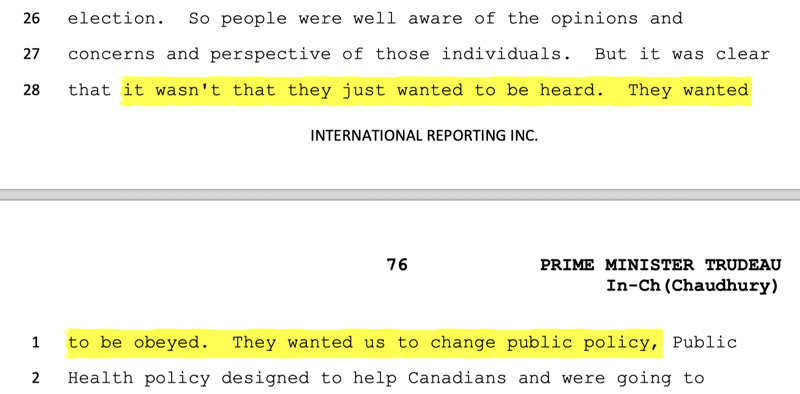What Would Justin Trudeau Have Done?
Officials refused to negotiate and got a court injunction against further protests. Martin Luther King Jr. marched anyway and went to jail.
In 1963, a series of protests had inconvenienced, alarmed, and economically wounded Birmingham, Alabama. After the city persuaded a judge to ban further protests, civil rights leader Martin Luther King Jr. violated that injunction.
An ordained Baptist minister, he said he was spreading “the gospel of freedom.” He called the injunction undemocratic, unconstitutional, and unjust. He was arrested, charged with “parading without a permit,” and placed in solitary confinement. During his eight days in custody he penned one of the most famous essays in the English language, A Letter from Birmingham Jail.
It explains that he’d travelled to Birmingham to protest because it was “probably the most thoroughly segregated city” in the country. Previous attempts to address police brutality, biased courts, segregated lunch counters, segregated parks, and segregated churches had borne little fruit. For too long, he said, there had been “monologue rather than dialogue.”
Reverend King talks about struggling to explain to his “six-year-old daughter why she can’t go to the public amusement park that has just been advertised on television.” He describes “tears welling up in her eyes” after he tells her Funtown is closed to some kinds of children.
His essay repeatedly mentions the “struggle for freedom” and the “freedom movement.” Members of his community need an outlet for their frustration and resentment, he says:
So let him march; let him make prayer pilgrimages to the city hall; let him go on Freedom Rides - and try to understand why he must do so. If his repressed emotions are not released in nonviolent ways, they will seek expression through violence; this is not a threat but a fact of history.
In one of the essay’s most memorable lines, Rev. King declares:
There comes a time when the cup of endurance runs over, and men are no longer willing to be plunged into the abyss of despair.
Civil rights leaders had “sought to negotiate” he said, but the authorities had “consistently refused to engage in good faith negotiation.” Did I mention that Rev. King got called all sorts of names? That he was accused of extremism?
Last week, Canada’s Prime Minister testified under oath. Justin Trudeau argued that the Freedom Convoy truckers who protested in Ottawa were illegitimate. Gosh, they wanted to change public policy.

Which is the point of every protest. Duh.
When thousands feel strongly enough to protest outdoors for three weeks in subzero weather, the status quo has become untenable. Peaceful protest is a democratic right. It is also a safety valve. Civilized people resolve their differences by talking to each other, by finding common ground, and by compromising.
The parallels between Justin Trudeau and those in charge of Birmingham, Alabama in 1963 are startling.





This talks to us about the truth that Donna is exposing:
https://twitter.com/wallstreetsilv/status/1597762336164843521?s=12&t=GQNVpLD0nGzhT7qW7L4ddw
Thank you, Donna.